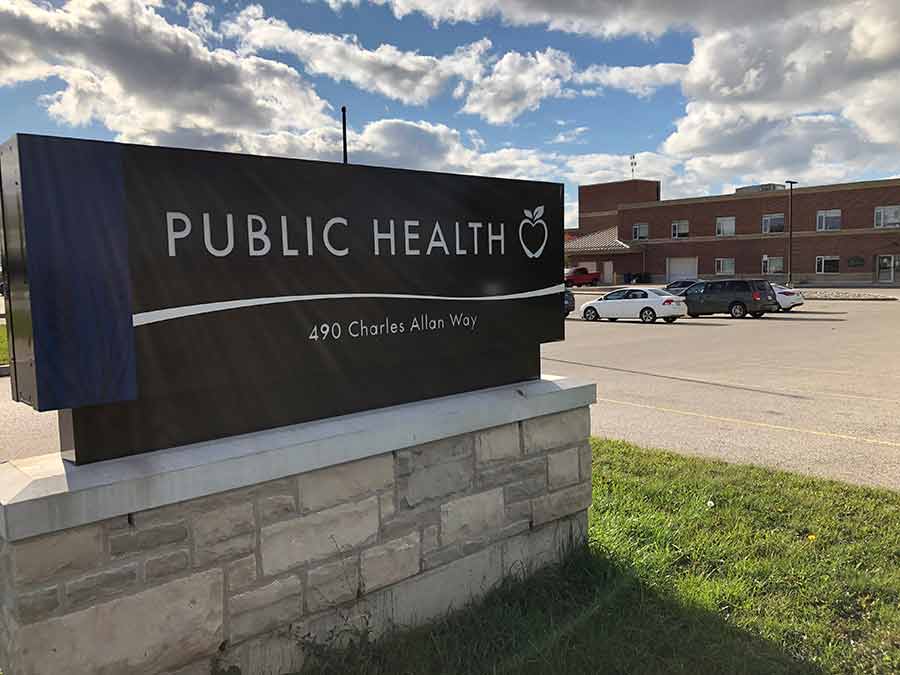WELLINGTON COUNTY – November is Radon Action Month in Canada.
Radon is a colourless, odourless gas present in many homes. It is a naturally occurring radioactive gas found in soil, rock and groundwater.
Radon is the leading cause of lung cancer in non-smokers.
Testing is the only way to measure the presence of radon inside a home.
Medical officer of health Dr. Nicola Mercer shared information about radon during a Board of Health of Wellington-Dufferin-Guelph Public Health meeting on Nov. 1.
She said about 15 per cent of homes in Wellington-Dufferin-Guelph have radon – 18% in the City of Guelph.
But there is no regulation requiring home owners or apartment buildings to test for radon, Mercer said.
Radon is a heavy gas and naturally sinks to the basement, meaning people living in basement apartments or sleeping in basement bedrooms are at highest risk of radon exposure, she added.
“Radon can pose a serious risk to you and your family,” states environmental health manager for Wellington-Dufferin-Guelph Public Health Phil Wong in a press release.
“There are steps you can take to reduce your risk. Purchase a certified test kit online by visiting wdgpublichealth.ca/radon or check out your local library as many offer radon detector lending programs. Once you know your individual risk, you can take steps to mitigate the presence of radon in your home.”
In Wellington County, 10 of the 14 library branches carry radon detectors: Aboyne, Arthur, Drayton, Marden, Palmerson, Puslinch, Erin, Fergus, Harriston and Mount Forest. To borrow a radon detector from the library, ask library staff at the main desk of any of the above branches, or visit wellington.ca/library to place a hold.
For more information about testing and reducing radon levels visit wdgpublichealth.ca/radon.




